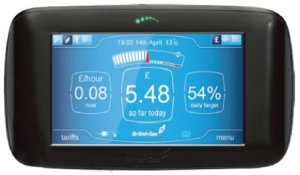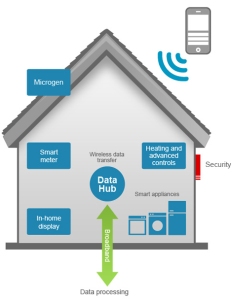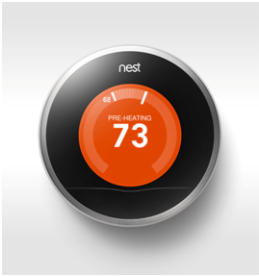
Let’s face it: Smart homes cost. Either you are super rich and can afford for the super fancy all included solution such as offered by Siemens for heating, lighting and security and let somebody connect this to your home entertainment and to your smart kitchen appliances…. Or, well – you try to figure it out yourself. You buy some bits and bobs here and there to not squeeze your wallet completely. Let’s say you have managed to get your hand on the NEST thermostat, the Samsung Fridge and vacuum cleaner and the LG oven and TV. Well – did you think about how they would work together? Is there an app that integrates them all and would let you use them inter-connectedly? Are the routers in your house strong enough to actually reach their wireless connections? Are your devices secure and cannot be hacked?
Reality shows: It is not that easy at the moment to turn your home into a smart home if you don’t have the adequate funds to get it done professionally. Samsung and LG are releasing a series of smart appliances this year and featured them at the CES earlier in January. But one issue is striking: Ones you have bought an appliance you are locked into their company. The appliances do not work with each other as they do not work with the same software. Your Samsung smart fridge doesn’t have the same features as the LG smart fridge and certainly won’t tell the LG smart oven on what temperature to preheat the oven ones you have decided for a recipe suggested by your fridge based on the ingredients in it. Your Samsung washing machine on the other hand, won’t tell your LG TV that the wash is ready. It’s those inter-connected services that allow us to derive real value from smart homes (at least in the current state of their development).
I think a few challenges have become clear: Smart homes are expensive, smart homes are difficult to integrate, smart home devices don’t work with each other unless they are from the same company, and technical difficulties may turn our lives into hell if the initial improvement of our day to day activities turns out to be time consuming and annoying because it never works the way it is supposed to work (eg.Software updates may disrupt device compatibility).
This is much related to the actual smart home apps that allow us to control all those devices from our smart home. The problem starts already with the fact, that often all devices have their own apps depending largely on the manufacturers. As connection to apps and inter-connectedness increases the possibility for hackers to access those devices,many device makers haven’t opened up their systems to home controllers. Now, as you may imagine, having a different app to control your heating, your lighting, yourTV and your security system – that’s not really easy. There are some attempts to provide integrated apps, such as Smartthings or Revolv. While Smartthings provides good software that builds commands through specific needs and moments, it is not wireless and the router needs to be centrally located to reach all the appliances and it turns out to be difficult to sniff out compatible smart devices. Revolv seems to be the exact opposite: it has good sensing abilities and with more radio transmitters than the competition it was able to deliver on all the tasks asked for, but it wasn’t able to understand conditions like time and day. So overall: Experience shows, that either there are technical difficulties, of the app not recognizing appliances, or the settings do not allow for enough customization. Samsung and LG may have at least some competitive advantage in this regard: firstly, they offer significant interconnectedness with their devices and their own software protocols should be able to recognize their own appliances. In terms of their usefulness..well as they aren’t on the market yet, it is difficult to judge their ability to customize your specific needs. Though, even they have to deal with some very real challenges: Software develops quickly and updates continuously, while technological devices are often bought for several years at the time. How will smart appliances manufacturers integrate this problem? Or have they thought about it? Basically: Smart homes aren’t smart enough just yet to significantly ease our lives. They don’t recognize our moods and know what music we would like to hear, they don’t know our appetite in that specific moment and well – they probably don’t work the way we planned anyways. They are trying, but currently they are still too dumb – and expensive.
Another important point to consider, are families. If you are single – well, there is exactly one way the home should function for you to like it. But in a family, people may well have different ideas of when they’d like the light to turn on in the morning or at what temperature the house should be heated. How are smart homes going to adapt to those circumstances?
Consider it yourself: Are smart homes worth it for you just yet?
T.S.



